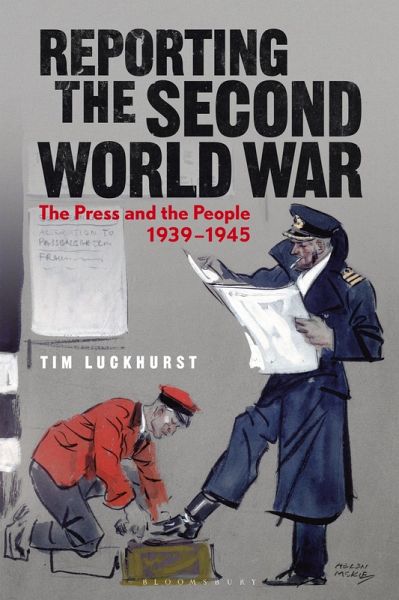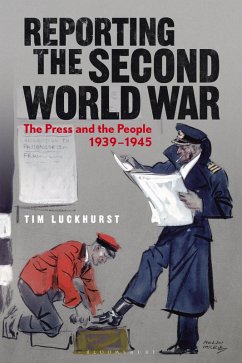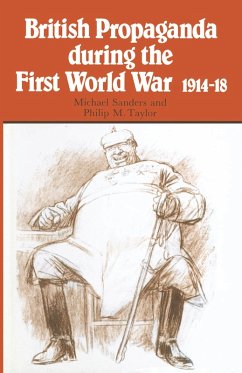
Reporting the Second World War (eBook, PDF)
The Press and the People 1939-1945
Versandkostenfrei!
Sofort per Download lieferbar
21,95 €
inkl. MwSt.
Weitere Ausgaben:

PAYBACK Punkte
11 °P sammeln!
The decisive role of Britain's wartime newspaper journalism in shaping public opinion and government policy has been majorly overlooked. Much of the existing historiography has framed Britain's newspapers as mouthpieces of state propaganda, readily conforming to the wishes of the wartime coalition. Tim Luckhurst challenges this through an analysis of illuminating and largely forgotten controversies which underscore the function the press held as guardians of democracy and propagators of dissenting opinion in British politics and society - from the overseas evacuation of children to the Allies'...
The decisive role of Britain's wartime newspaper journalism in shaping public opinion and government policy has been majorly overlooked. Much of the existing historiography has framed Britain's newspapers as mouthpieces of state propaganda, readily conforming to the wishes of the wartime coalition. Tim Luckhurst challenges this through an analysis of illuminating and largely forgotten controversies which underscore the function the press held as guardians of democracy and propagators of dissenting opinion in British politics and society - from the overseas evacuation of children to the Allies' carpet bombing of German cities. Reporting the Second World War is a timely and important intervention that duly recognises the place of national, regional and specialist titles in speaking truth to power in a democracy at war.













